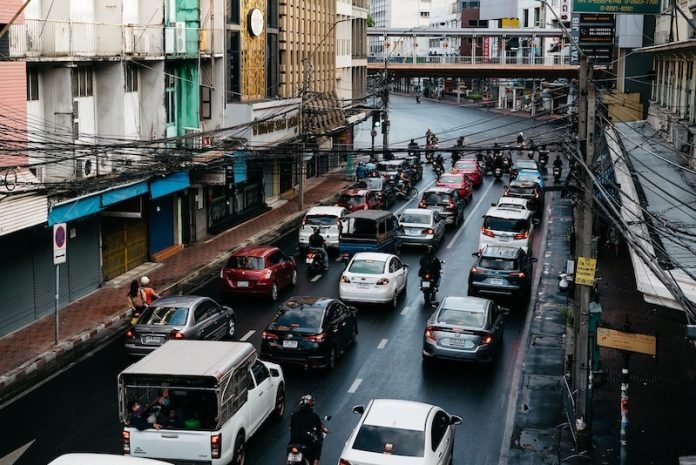
Air pollution from traffic is a growing concern for our health. It’s not just about what we breathe outdoors; even inside our cars, we might be exposed to harmful pollutants.
A recent study conducted by the University of Washington has discovered that when we’re driving in our cars, the air we breathe can impact our blood pressure, and not in a good way.
The Impact of Air Pollution in Cars
You might think that being inside your car protects you from the pollution outside, but this study shows that’s not entirely true.
When you’re in your car, especially if it doesn’t have a good air filter, you could be breathing in tiny particles and gases from the traffic around you.
The Study Details
To understand this better, researchers took 16 volunteers, aged 22 to 45, on drives through the busy streets of Seattle. During these drives, they monitored the volunteers’ blood pressure. They did this on three different days under varying conditions:
No Air Filtration: On two days, the car’s air filtration system was turned off. This meant that the air inside the car was the same as the air outside, including all the pollution from the traffic.
With Air Filtration: On another day, the car was equipped with a high-efficiency particulate air (HEPA) filter. This filter is excellent at trapping tiny particles, so it helps clean the air inside the car.
What the Study Found
Here’s what the study discovered:
- When the volunteers were in the car without the air filter, their blood pressure went up. On average, it increased by about 4.5 mm Hg.
- This increase happened quite quickly, usually within an hour of being exposed to the polluted air.
- The rise in blood pressure lasted for a full day even after leaving the polluted environment.
In simpler terms, the study found that the air pollution from the traffic can cause your blood pressure to go up. This isn’t good news for your heart health.
Why Does This Matter?
High blood pressure is a risk factor for heart disease. When your blood pressure stays high for a long time, it can damage your arteries and increase your chances of having a heart attack or stroke.
So, even a small increase in blood pressure caused by air pollution can be concerning, especially when it happens regularly during your daily commute.
Protecting Yourself
While you might not be able to control the air quality outside your car, there are some things you can do to protect yourself and your heart:
- Use Air Filters: If your car has an air filter, make sure it’s clean and working well. If not, consider getting one installed.
- Keep Windows Closed: When you’re driving in heavy traffic or in areas with a lot of pollution, it’s a good idea to keep your windows closed to reduce the amount of outside air coming in.
- Plan Your Routes: If possible, choose routes with less traffic or areas with better air quality. Avoiding heavy traffic can help reduce your exposure to pollution.
Conclusion
This study serves as a reminder that air pollution can affect our health in ways we might not even realize. It’s essential to be aware of the air quality, especially when you’re spending a lot of time in your car.
Taking steps to reduce your exposure to traffic-related air pollution can go a long way in protecting your heart and overall well-being.
If you care about blood pressure, please read studies about Changing blood pressure readings is a hidden sign of heart disease and findings of Scientists shows switching blood pressure drugs may treat the condition better.
For more information about blood pressure, please see recent studies about How to eat your way to healthy blood pressure and results showing that Modified traditional Chinese cuisine can lower blood pressure.
The research findings can be found in the Annals of Internal Medicine.
Copyright © 2023 Knowridge Science Report. All rights reserved.



